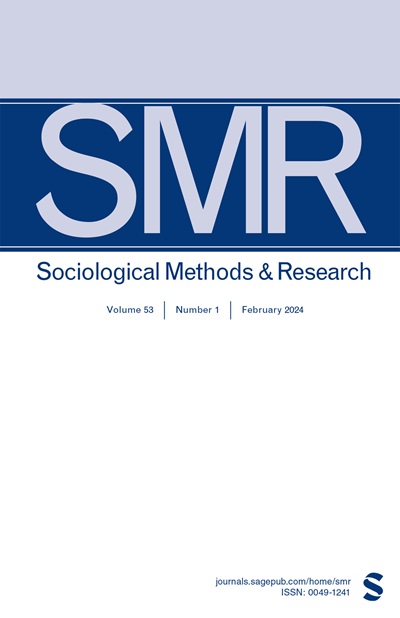QCA中的不确定性、可能性和因果力
IF 6.5
2区 社会学
Q1 SOCIAL SCIENCES, MATHEMATICAL METHODS
引用次数: 13
摘要
不确定性破坏了因果关系主张;然而,因果索赔的性质决定了什么是相关的不确定性。在因果关系的规律性理论中,经验稳健性是必不可少的。正则性理论在QCA中具有很强的特色,使其对大小写的敏感性成为一个弱点。根据定性比较分析(QCA)创始人查尔斯·拉金对本体论实在论的强调,本文认为因果关系是一种力量,从而打破了规则性理论的本体论决定论。行使因果力使人类代理人有可能取得结果,但并不决定他们是否会取得结果。这篇文章解释了QCA的真值表分析如何“建模”可能性不确定性,以及清晰集如何比模糊集更好地做到这一点。因果力是批判现实主义科学哲学的核心。和拉金一样,批判性现实主义认为实证分析只是描述潜在的因果关系。经验陈述必须被实质性地解释为因果声明。这篇文章批评了“经验主义”QCA,它从集合关系的稳健性推断因果关系。本文章由计算机程序翻译,如有差异,请以英文原文为准。
Uncertainty, Possibility, and Causal Power in QCA
Uncertainty undermines causal claims; however, the nature of causal claims decides what counts as relevant uncertainty. Empirical robustness is imperative in regularity theories of causality. Regularity theory features strongly in QCA, making its case sensitivity a weakness. Following qualitative comparative analysis (QCA) founder Charles Ragin’s emphasis on ontological realism, this article suggests causality as a power and thus breaks with the ontological determinism of regularity theories. Exercising causal powers makes it possible for human agents to achieve an outcome but does not determine that they will. The article explains how QCA’s truth table analysis “models” possibilistic uncertainty and how crisp sets do this better than fuzzy sets. Causal power is at the heart of critical realist philosophy of science. Like Ragin, critical realism suggests empirical analysis as merely describing underlying causal relationships. Empirical statements must be substantively interpreted into causal claims. The article is critical of “empiricist” QCA that infers causality from the robustness of set relationships.
求助全文
通过发布文献求助,成功后即可免费获取论文全文。
去求助
来源期刊

Sociological Methods & Research
Multiple-
CiteScore
16.30
自引率
3.20%
发文量
40
期刊介绍:
Sociological Methods & Research is a quarterly journal devoted to sociology as a cumulative empirical science. The objectives of SMR are multiple, but emphasis is placed on articles that advance the understanding of the field through systematic presentations that clarify methodological problems and assist in ordering the known facts in an area. Review articles will be published, particularly those that emphasize a critical analysis of the status of the arts, but original presentations that are broadly based and provide new research will also be published. Intrinsically, SMR is viewed as substantive journal but one that is highly focused on the assessment of the scientific status of sociology. The scope is broad and flexible, and authors are invited to correspond with the editors about the appropriateness of their articles.
 求助内容:
求助内容: 应助结果提醒方式:
应助结果提醒方式:


